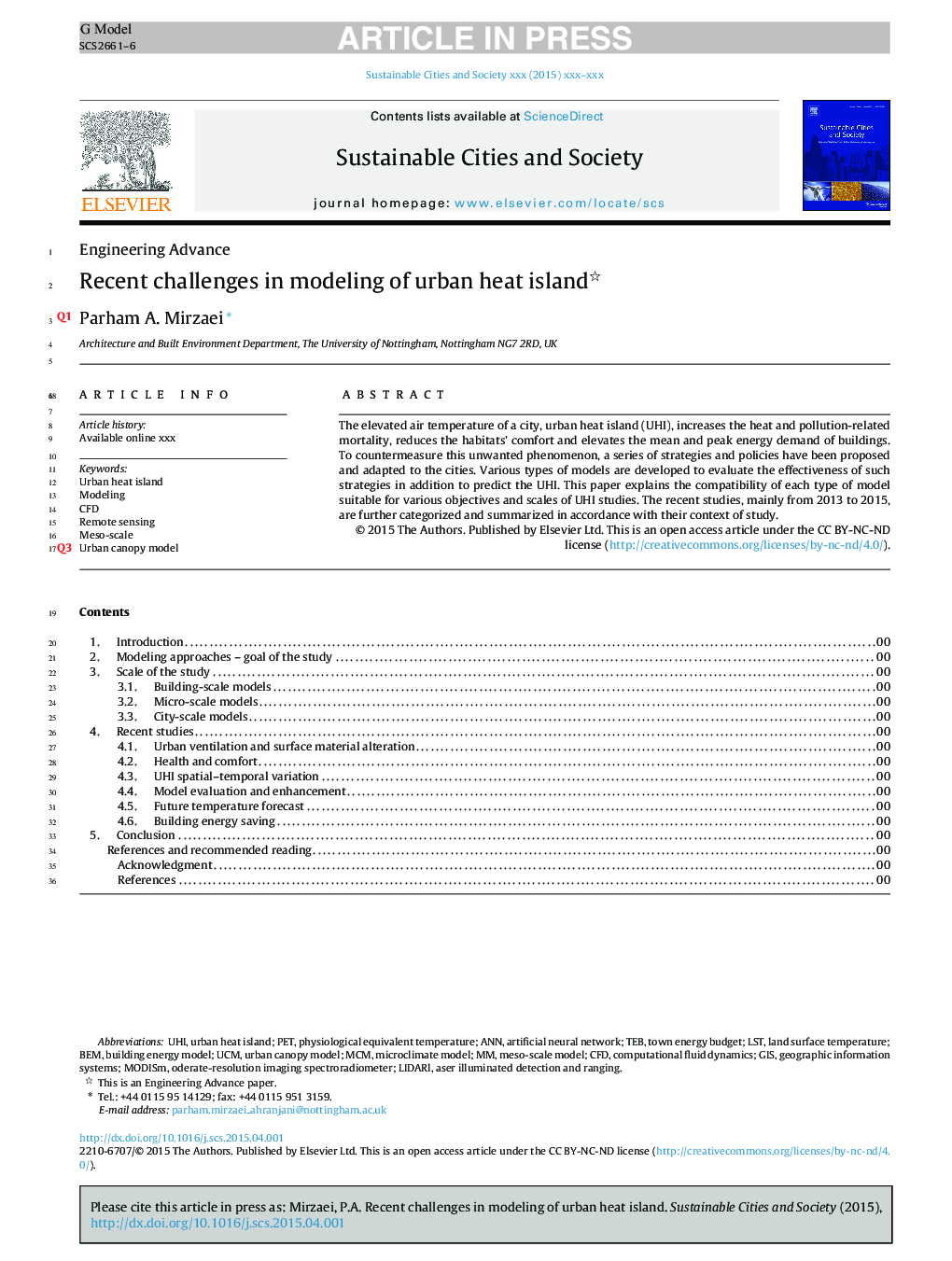| Article ID | Journal | Published Year | Pages | File Type |
|---|---|---|---|---|
| 6775910 | Sustainable Cities and Society | 2015 | 6 Pages |
Abstract
The elevated air temperature of a city, urban heat island (UHI), increases the heat and pollution-related mortality, reduces the habitats' comfort and elevates the mean and peak energy demand of buildings. To countermeasure this unwanted phenomenon, a series of strategies and policies have been proposed and adapted to the cities. Various types of models are developed to evaluate the effectiveness of such strategies in addition to predict the UHI. This paper explains the compatibility of each type of model suitable for various objectives and scales of UHI studies. The recent studies, mainly from 2013 to 2015, are further categorized and summarized in accordance with their context of study.
Keywords
Related Topics
Physical Sciences and Engineering
Energy
Renewable Energy, Sustainability and the Environment
Authors
Parham A. Mirzaei,
